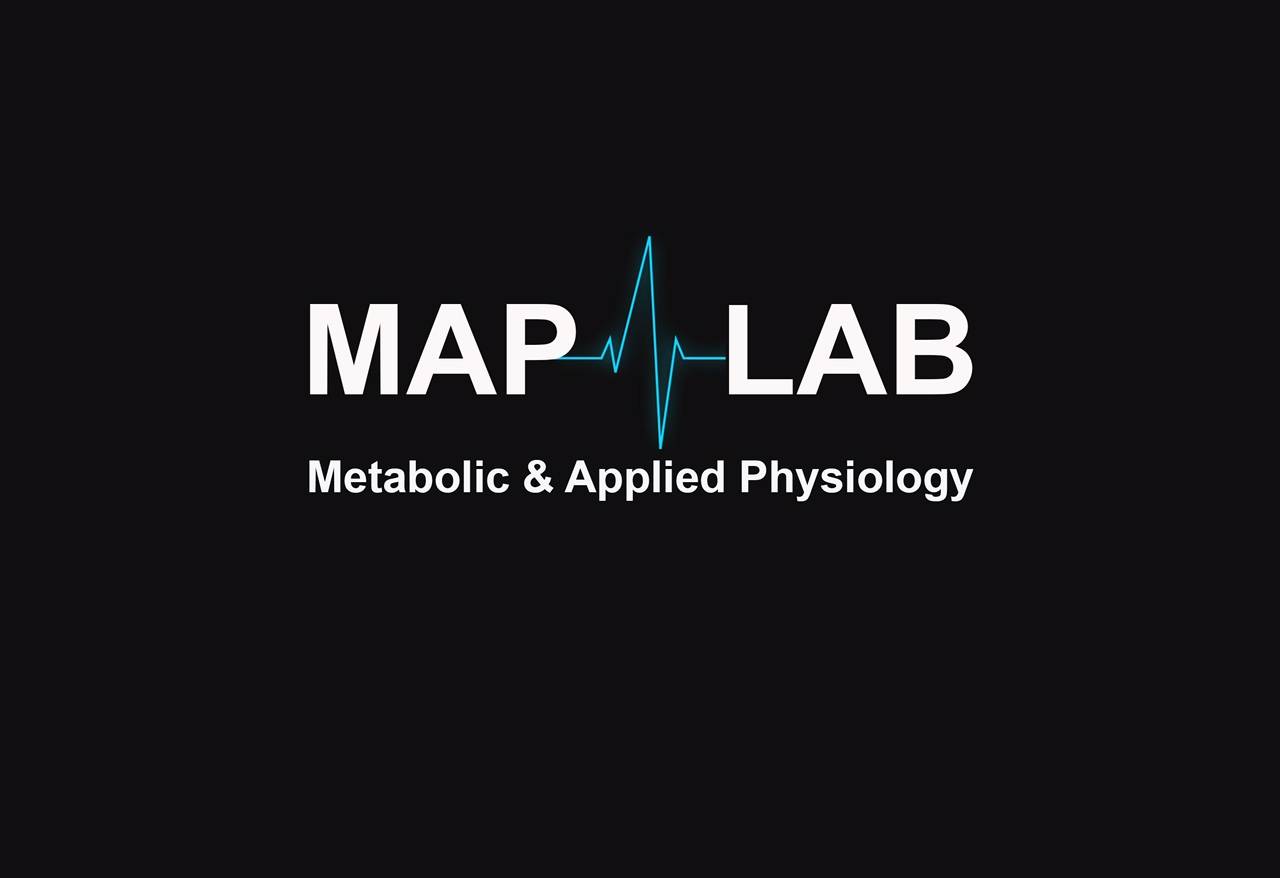Lab Director: Matthew J. McAllister
The Metabolic and Applied Physiology Laboratory (i.e., MAP Lab) involves work with human subjects with a focus on dietary and exercise interventions aimed at improving aspects of cardiometabolic health and performance.
Specific areas of focus within the MAP Lab include:
- Impact of psychological and physiological stress on biomarkers of stress, inflammation and cardiovascular disease risk
- Methods to mitigate the physiological impact of stressors in high stress occupations (firefighters, military personnel, etc.)
- Exercise and dietary interventions aimed at improving health and performance of tactical athletes
While research within the MAP lab involves a variety of physical and biochemical analyses, much of the work is centered on studying biomarkers of stress and oxidative stress. Oxidative stress is a condition associated with excessive production of radical species (e.g., free radicals) resulting in damage to various biomolecules such as proteins, DNA, enzymes, and cellular structures. Most of the work done within the MAP Lab is focused on investigating methods to increase antioxidant protection against oxidative stress and improve substrate utilization during exercise. Since oxidative stress has a strong association with the aging process as well as most chronic diseases, research findings have major implications for a variety of populations in terms of health and performance benefits, especially in high stress occupations (e.g., firefighters, military personnel, etc.). The MAP Lab also provides an opportunity for undergraduate and graduate students to learn about metabolic and biochemical assessments that may involve collection of biological samples (i.e., blood, saliva, skeletal muscle) as well as the analysis of stress hormones, markers of oxidative stress and inflammation.
In addition, the MAP lab has an ongoing partnership with the ALERRT Center at Texas State. This work is heavily focused on training law enforcement personnel for active shooter scenarios. This ongoing partnership involves conducting controlled research interventions aimed at mitigating stress responses and improving performance to such scenarios. Personnel in the MAP lab are involved in collecting and analyzing biomarkers of stress.
For more information on the ongoing research with high stress occupations, see our Tactical Physiology & Performance page.
Contact Dr. McAllister for more information regarding the ongoing research in the MAP Lab: mjm445@txstate.edu or 512-245-2953.
Examples of some of the recent publications from the work done in the MAP lab include:
Sutton, N., Martaindale, H.M., Uriegas, S., Dillard, C., McAllister, M.J. (2025). Virtual reality based active shooter training: added physical stress increases anxiety but not stress biomarkers. Psychoneuroendocrinology, in press. DOI: 10.1016/j.psyneuen.2025.107628
Gonzalez, D.E., Coles, M.E., Tanksley, P.T., Martaindale, M.H., Martin, S.E., McAllister, M.J. (2025). Relationships between physiological stress biomarkers and cardiovascular disease risk factors among career firefighters. Journal of Occupational and Environmental Medicine, 67(7), 535-541. DOI: 10.1097/JOM.0000000000003389.
Walker, J.K., Dillard, C.C., Gonzalez, D.E., Waldman, H.S., McAllister, M.J. (2025). Impact of the menstrual cycle phases and time of day on markers of stress: salivary alpha-amylase and secretory immunoglobulin A. Stress, 28(1). DOI.10.1080/10253890.2024.2449098.
McAllister, M.J., Martaindale, M.H., Dillard, C.C., Gonzalez, D.E. (2024). Stress response to virtual reality based active shooter training: Impact of caffeine consumption. Psychoneuroendocrinology, 161, 106923. DOI: 10.1016/j.psyneuen.2023.106923.
Waldman, H.S., Witt, C.R., Grozier, C.D., McAllister, M.J. (2023). A self-selected 16:8 time restricted eating quasi-experimental intervention improves various markers of cardiovascular health in middle-age male cyclists. Nutrition, 113, 112086. DOI: 10.1016/j.nut.2023.112086.
Hunter, S.D., Bernardi, L., McAllister, M.J., John, D., Rahimi, M., Lopez, M.R. (2023). Device-guided slow breathing alters postprandial oxidative stress in young adult males: A randomized sham-controlled crossover trial. Nutrition, Metabolism, and Cardiovascular Diseases, ePub ahead of print. DOI: 10.1016/j.numecd.2022.10.002.
Waldman, H.S., Bryant, A.R., McAllister, M.J. (2023). Effects of betaine supplementation on markers of metabolic flexibility, body composition, and anaerobic performance in active college-age females. Journal of Dietary Supplements, 20(1), 89-105. DOI: 10.1080/19390211.2021.1973644.
McAllister, M.J., Gonzalez, A.E., Waldman, H.S. (2022). Impact of time restricted feeding on markers of cardiometabolic health and oxidative stress in resistance trained firefighters. Journal of Strength and Conditioning Research, 1;36(9), 2515-2522. DOI: 10.1519/JSC.0000000000003860
McAllister, M.J., Steadman, K.S., Renteria, L.I., Case, M.J., Butawan, M.B., Bloomer, R.J., McCurdy, K.W. (2022). Acute resistance exercise reduces postprandial lipemia and oxidative stress in resistance trained men. Journal of Strength and Conditioning Research, 36(8), 2139-2146. DOI: 10.1519/JSC.0000000000003831.
Waldman, H.S., Bryant, A.R., Shepherd, B.D., Egan, B., McAllister, M.J. (2022). No effect of a ketone monoester on markers of stress and performance in a live-burn search and rescue in firefighters. Journal of Strength and Conditioning Research, 33(6), 763-771.
McAllister, M.J., Mettler, J.A., Patek, K., Butawan, M., Bloomer, R.B. (2022). Astaxanthin supplementation increases glutathione concentrations but does not impact fat oxidation during exercise in active young men. International Journal of Sport Nutrition and Exercise Metabolism, 32(1), 8-15.

